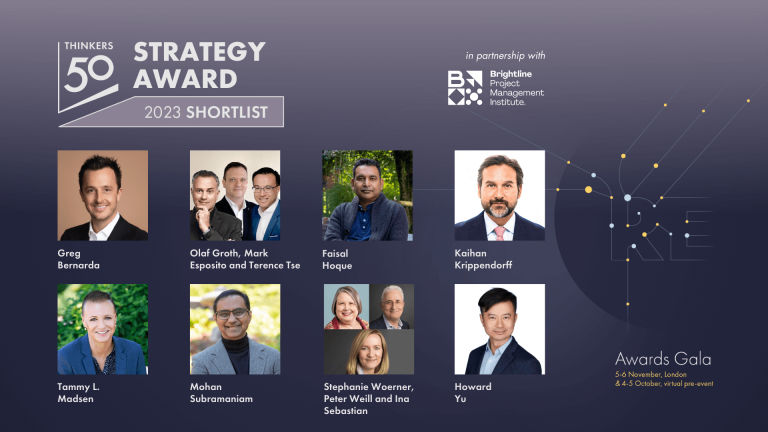

by Liz Mellon
All human beings go through some predictable stages of emotional reaction in response to change. We are irrational in predictable ways. The first is denial—we are flustered, and we want the world to go back to the way it was before we heard the news. The second stage is anger or emotion of some kind; what is happening feels unfair, or frustrating, or wrong. Then there is a period of bargaining, as we grapple with the reality of the new situation, and try to bring it under our control. Then comes a period of withdrawal as we really process what is happening and try to make sense of it. We experiment with new ways of working and try to figure out ways to move ahead. Finally, we accept the situation—it might continue to make us unhappy, but we learn to live with it and move on. We have woven new practices, beliefs, and routines into our lives. The change process, once complete, provides the basis of our “new normal.” Until the next round of change.
These reactions are more of a menu than a recipe. We don’t necessarily go through them in exactly this sequence, and sometimes we will loop round more than once. We don’t always feel each stage deeply. In contrast, at other times we might get stuck permanently in one stage and fail to move on, unless we can ask for and accept help. Have you ever met anyone like this? Someone who is still feeling angry about some event that happened years ago and has never fully accepted it and so has been unable to integrate it into a new way of being? It’s also possible to feel each stage deeply but to keep moving forward, or to move superficially and quickly through the change without intense personal impact. It depends on how big and important the change feels to us.
Strategy execution means change, and change is an emotional process. Appealing to logic, citing facts and figures, or careful elucidation of the vision doesn’t work. When we’re in a state of nervousness or anxiety, we need emotional reassurance or a hug. It’s not evidence we seek, but empathy or at least a bit of sympathy. It’s a bit like being in an argument at home and your partner looks at you and says, “You don’t love me any more.” That is not the moment to launch into a list of things you have done that prove your love. It’s time to tune into what your partner is feeling and why. It’s time for a hug.
This isn’t a new management technique. We are not suggesting that you actually go round hugging people at work, although it seemed to work for Herb Kelleher. Rather than literally hugging people at work, try a metaphorical hug. What’s a metaphorical hug like? It’s listening, it’s acknowledging the anxiety, and it’s providing space and time for conversations about trepidation and uncertainties. Yet our default tends to be intellectual, to cite again all the good reasons why this route is the right one, to try to move past the uncertainty and the hesitation as fast as possible. Too much thinking with too little empathy simply doesn’t work.
It’s as if we are afraid that if we stop to ask a question, we won’t be able to respond with all the facts at our fingertips, so it’s best not to pause. But when they’re faced with change, people need to talk and be heard; they don’t necessarily need to be answered. It’s as if we are in too much of a hurry to get on with it and don’t have the time to discuss it. But unless people can make sense of the change in their own way, you can hurry all you like. They won’t be hurrying after you.
Liz Mellon of Duke CE is author (with Simon Carter) of The Strategy of Execution (McGraw Hill, 2013) and Inside the Leader’s Mind (FT Prentice Hall 2011).

Thinkers50 Limited
The Studio
Highfield Lane
Wargrave RG10 8PZ
United Kingdom

Thinkers50 Limited
The Studio
Highfield Lane
Wargrave RG10 8PZ
United Kingdom

| Cookie | Duration | Description |
|---|---|---|
| LANG | 9 hours | Linkedin set this cookie to set user's preferred language. |
| nsid | session | This cookie is set by the provider PayPal to enable the PayPal payment service in the website. |
| sp_landing | 1 day | The sp_landing is set by Spotify to implement audio content from Spotify on the website and also registers information on user interaction related to the audio content. |
| sp_t | 1 year | The sp_t cookie is set by Spotify to implement audio content from Spotify on the website and also registers information on user interaction related to the audio content. |
| tsrce | 3 days | PayPal sets this cookie to enable the PayPal payment service in the website. |
| x-pp-s | session | PayPal sets this cookie to process payments on the site. |
| __cf_bm | 30 minutes | This cookie, set by Cloudflare, is used to support Cloudflare Bot Management. |
| Cookie | Duration | Description |
|---|---|---|
| l7_az | 30 minutes | This cookie is necessary for the PayPal login-function on the website. |
| Cookie | Duration | Description |
|---|---|---|
| CONSENT | 2 years | YouTube sets this cookie via embedded youtube-videos and registers anonymous statistical data. |
| _ga | 2 years | The _ga cookie, installed by Google Analytics, calculates visitor, session and campaign data and also keeps track of site usage for the site's analytics report. The cookie stores information anonymously and assigns a randomly generated number to recognize unique visitors. |
| _gat_gtag_UA_10408481_1 | 1 minute | Set by Google to distinguish users. |
| _ga_ZP8HQ8RZXS | 2 years | This cookie is installed by Google Analytics. |
| _gid | 1 day | Installed by Google Analytics, _gid cookie stores information on how visitors use a website, while also creating an analytics report of the website's performance. Some of the data that are collected include the number of visitors, their source, and the pages they visit anonymously. |
| Cookie | Duration | Description |
|---|---|---|
| NID | 6 months | NID cookie, set by Google, is used for advertising purposes; to limit the number of times the user sees an ad, to mute unwanted ads, and to measure the effectiveness of ads. |
| test_cookie | 15 minutes | The test_cookie is set by doubleclick.net and is used to determine if the user's browser supports cookies. |
| VISITOR_INFO1_LIVE | 5 months 27 days | A cookie set by YouTube to measure bandwidth that determines whether the user gets the new or old player interface. |
| YSC | session | YSC cookie is set by Youtube and is used to track the views of embedded videos on Youtube pages. |
| yt-remote-connected-devices | never | YouTube sets this cookie to store the video preferences of the user using embedded YouTube video. |
| yt-remote-device-id | never | YouTube sets this cookie to store the video preferences of the user using embedded YouTube video. |
| yt.innertube::nextId | never | This cookie, set by YouTube, registers a unique ID to store data on what videos from YouTube the user has seen. |
| yt.innertube::requests | never | This cookie, set by YouTube, registers a unique ID to store data on what videos from YouTube the user has seen. |
| Cookie | Duration | Description |
|---|---|---|
| DEVICE_INFO | 5 months 27 days | No description |
| loglevel | never | No description available. |
| m | 2 years | No description available. |
Thinkers50 Limited has updated its Privacy Policy on 28 March 2024 with several amendments and additions to the previous version, to fully incorporate to the text information required by current applicable date protection regulation. Processing of the personal data of Thinkers50’s customers, potential customers and other stakeholders has not been changed essentially, but the texts have been clarified and amended to give more detailed information of the processing activities.